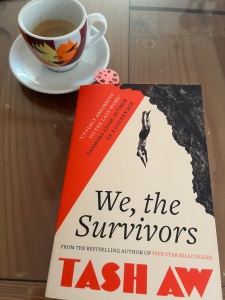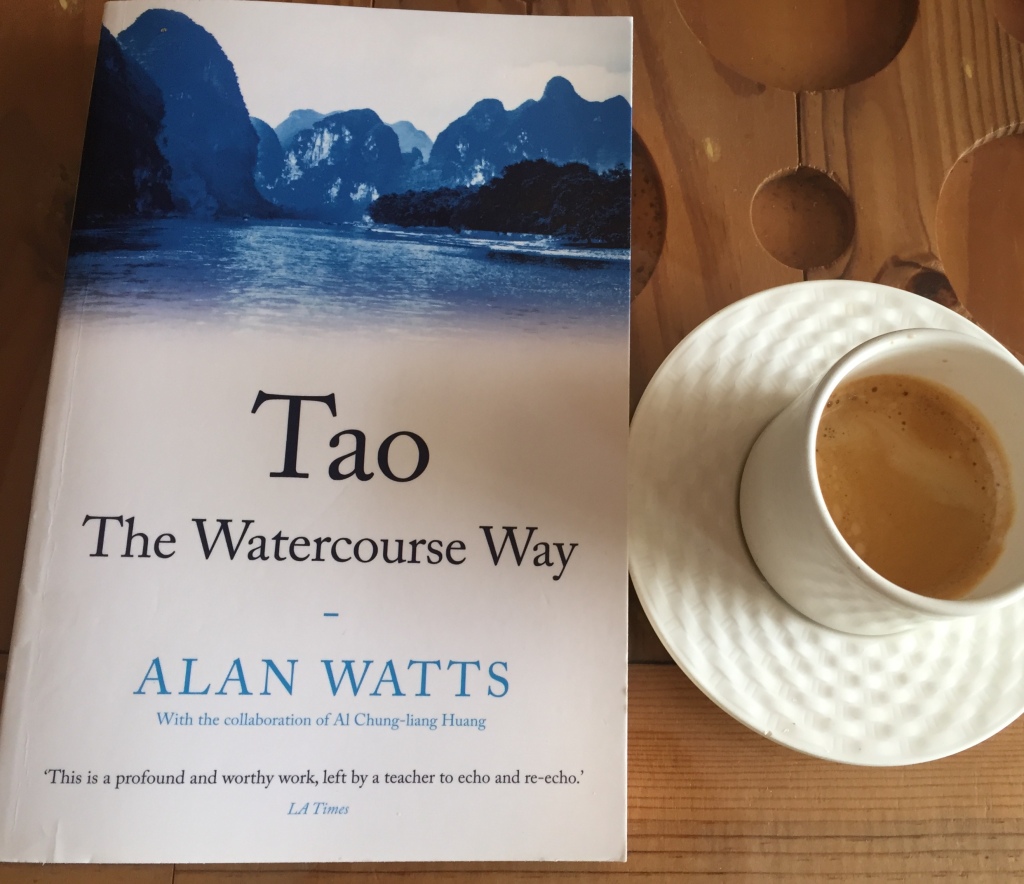
As you age, you realize that things you once thought had mattered no longer do and a lot of things mean so little. There were also dreams you had not followed through and while there is still time, maybe you can still make it if you want to realize it bad enough. Sometimes you think maybe it is not meant to be but at least you have tried. Things may not be perfect but you are OK. Is it destiny or fate that you make certain choices and not others? You will never know. You look around you, there is always something that gives you a sense of joy and that is enough. But for an avid reader, you definitely feel that you are up against time when come to reading the books you have not read but want to read. Early last week, I was feeling a little at a loose end so I took a walk to the independent bookshop down the road, five minutes walk from my office. I had just read We, the survivors by Tash Aw and would like to pick up another book by Tash Aw. Only Five Star Billionaire was available but i had already read it years ago. I used to avoid stories that are too close to home, stories such as The Snow in Kuala Lumpur or the like because they are realistic.
I believe that there is a time for every read. You might have come across a book or an author and you buy his or her book and read it only years or even decades later. I had a copy of We, the survivors when it was first published in 2019 . When I wanted to read it, I could not locate my copy so I bought another copy from the bookshop and it happened to be the last available copy at the shop then.

We, the Survivors is a harrowing tale written by Tash Aw. The story is set in present day Malaysia.The story is narrated in the protagonist, Lee Hock Lye aka Ah Hock’s voice. Ah Hock is an ordinary and simple man who was raised by his mother in a fishing village. There was a time Ah Hock was young and ambitious and had dreamt of living in a better place than the village he was born into. He was also known as Jayden Lee, a name he had chosen when he had found proper jobs and things were going well. One fateful moment of indiscretion, he committed an appalling act of violence that was most regrettable.Now he is out of jail, he tries to make sense how his life has spiralled out of his recognition. He has agreed to an interview by Tan Su-Min, a doctorate in sociology student who wishes to write his story.
This is how the story begins:

‘ October 2nd
You want me to talk about life, but all I’ve talked about is failure, as if they’re the same thing, or at least so closely entwined that I can’t separate the two – like the trees you see growing in the half-ruined buildings in the Old Town. Roots clinging to the outside of the walls, holding the bricks and stone and whatever remains of the paint together, branches pushing through holes in the roof.’
Ah Hock tells of how he was working at a fish farm in Klang and then Keong, a friend from teenage years showed up. Keong used to deal in drugs and pimping. Here was someone with whom he had not been in contact, with whom he shared nothing apart from a couple of teenage years, when they were no longer boys but not yet men. He tells Tan,
‘ A guy likes Keong turns up after nearly a decade’s silence, what am I supposed to feel?‘
Ah Hock says he should have been happy and relieved to know that Keong, now thirty-two was safe and healthy but he felt a numbness…..
‘But instead I felt a numbness that spread through my thoughts and even the muscles in my body, as if I’d been bitten by a sea snake.’
Keong got in touch with Hock who agonised whether to meet him when he would rather not. He decided to meet him. He’d meet him out of respect for an old friendship. Hock is traditional.
‘Village ties. The spirit of clans. It wasn’t so much that I had to give him face, it was because I had to respect customs. Someone from your old village resurfaces in your life, you treat them to dinner.‘
Hock sounds fatalistic as he narrates :
‘ No one can alter the course of things. Your karma is set, it determines eveything. I’d never believed in anything like that before – all the temples and prayers and amulets in my childhood, they proved nothing to me. But when I was in prison a few months later, I began to realise that it was all true. The joss-sticks and the offerings to the gods were a recognition of life’s inevitability. Those attempts to appease the gods were our way of acknowleging our helplessness.We were trying to soften the rougher edges of our fate, but really we knew that nothing would truly change, If your boat was going to capsize, it was going to capsize. Your death in the storm was predetermined. God wanted it to be so. You could have stayed home that day, but you decided to go the sea, because it was the only thing you could do.Likewise , when I rang Keong, the choice had already been made for me.’

As it turned out, Keong was operating as the “middleman.” for cheap foreign labour and he was in Klang looking for the Bangladeshi with whom he had made a deal.These “dark-skinned and foreign” men and women and refugees from Bangladesh and neighbouring countries make it into Malaysia with the hope of getting work and proper papers. Pending getting their permits, they are exploited. Hock was managing the Tilapia fish farm and when all the foreign workers (who were legal )had gotten sick due to cholera, he sent them to rest. Suddenly he was in urgent need of some workers to complete some tasks before his boss returned to the site. In his desperation, he asked Keong for help, that’s when things started to go horridly awry.
Ah Hock is usually kind and an egalitarian. He had moved out of the village, after drifting through a number of jobs in KL, he was subsequently hired by Mr Lai who owned vegetable farms, orchards and he was also the middleman who employed migrant workers (Bangladeshis and Indonesians) to harvest the rice for the Malays. At first Hock worked as a farm hand – a labourer -repairing , lifting, transporting, he worked hard and when he was promoted to be the foreman managing the workers, he felt uncomfortable that he ‘would hold power over other human beings‘ as he was akin to them, whose bodies worked like his and ‘whose desperation and joy‘ he ‘not only recognised but shared‘. He opposes exploitation and yet how did he end up killing a migrant? What if he had not taken that phone call from Keong?
Hock laments,
‘I sometimes wonder how things might have been if the line had gone dead, which sometimes happened, because our connection wasn’t very reliable‘.

At the end of the murder trial, his pro bono defence lawyer tried to explain to the jury the kind of childhood he had.
‘I understand that my life was being used as an excuse for many things. I listened to her speak about me, and though the facts were true, I felt as if she was describing someone else, someone who had grown up close to me, maybe in a village a couple of miles up the coast. Another guy who shared my name, which she kept repeating. Lee Hock Lye. Lee Hock Lye. Always my full name.‘
When Keong turned up in court three years later to testify, he was all cleaned up. He wore white long sleeved shirt and he no longer had blond hair. He told the court he was a businessman importing frozen dumplings and he owned a Toyota Camry. He was then a responsible family man saving up to send his daughter to boarding school in Australia……. .
Hock tells Tan that on the other side of the courtroom, he had difficulty hearing the man. ‘ He answered quietly, as if he didn’t want me to hear what he was saying.’
‘The man seemed to be embarrassed by the way he lived. Why would someone feel shy about having a life like that?
He then realised the man was his friend Keong.
‘We’d shared so much as children. People used to say, “No use giving Ah Hock any ice cream,he’ll just give half to that little bastard Keong.” But time – that was something we couldn’t share. It could only favour one of us.‘
Your heart goes to the protagonist who had until then navigated life by going with the grain.Was that ‘What can go wrong, will go wrong’ as what is famously known as one of Murphy’s laws?
We, the Survivors, by Tash Aw is a story about poverty, social class and migration in the hope of finding work and a better living. Tash Aw is a prolific writer. He has cleverly weaved a story about poverty, race, inequality in society and corruption.


Note:
When things that are incomprehensible happen, perhaps to help us navigate on, we need to understand we are not just our conscious self. To quote Alan Watts ‘we need a new kind of consciousness in which every individual becomes aware that his real self is not just his conscious ego.’ (Text sourced from Man in Nature, Alan Watts )

‘AT THE VERY ROOTS of Chinese thinking and feeling there lies the principle of polarity, which is not to be confused with the ideas of opposition or conflict. In the metaphors of other cultures, light is at war with darkness, life with death, good with evil, and the positive with the negative, and thus an idealism to cultivate the former and be rid of the latter.‘
-Chapter 2 The Yin-Yang Polarity , Tao, The Watercourse Way, ALAN WATTS